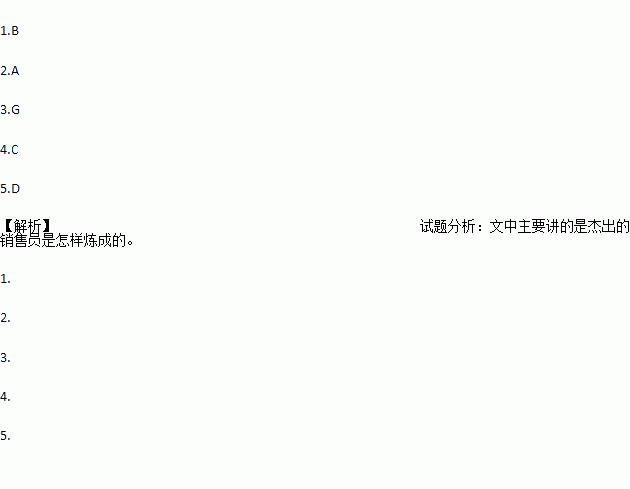题目内容
I was ten when I first sat with my grandmother behind the cashier(收银台) in her grocery store. 1. I quickly learned the importance of treating customers politely and saying “thank you.”
At first I was paid in candy. 2. I worked every day after school, and during the summer and on weekends and holidays from 8 a.m. to 7 p.m. My father helped me set up a bank account._ 3.
By the time I was 12, my grandmother thought I had done such a good job that she promoted me to selling cosmetics(化妆品). I developed the ability to look customers directly in the eye. Even though I was just a kid, women would ask me such things as “What color do you think I should wear?” I took a real interest in their questions and was able to translate what they wanted into makeup(化妆) ideas. 4.
The job taught me a valuable lesson: to be a successful salesperson, you didn’t need to be a rocket scientist—you needed to be a great listener. 5. Expect they are no longer women buying cosmetics from me; instead, they are kids who tell me which toys they would like to see designed and developed.
A. Later I received 50 cents an hour.
B. Before long, she let me sit there by myself.
C. I ended up selling a record amount of cosmetics.
D. Today I still carry that lesson with me: I listen to customers.
E. My grandma’s trust taught me how to handle responsibility(承担责任).
F. Soon I found myself looking more beautiful than ever before.
G. Watching my money grow was more rewarding/worthy than anything I could have bought.

